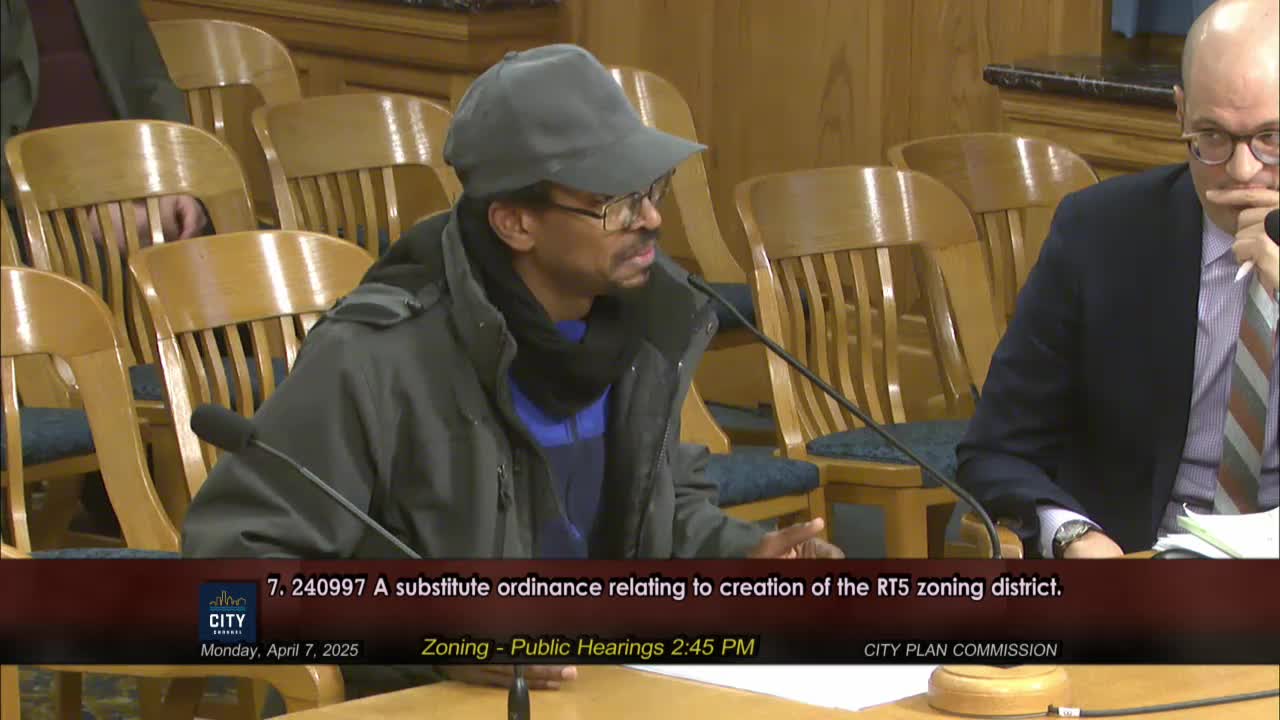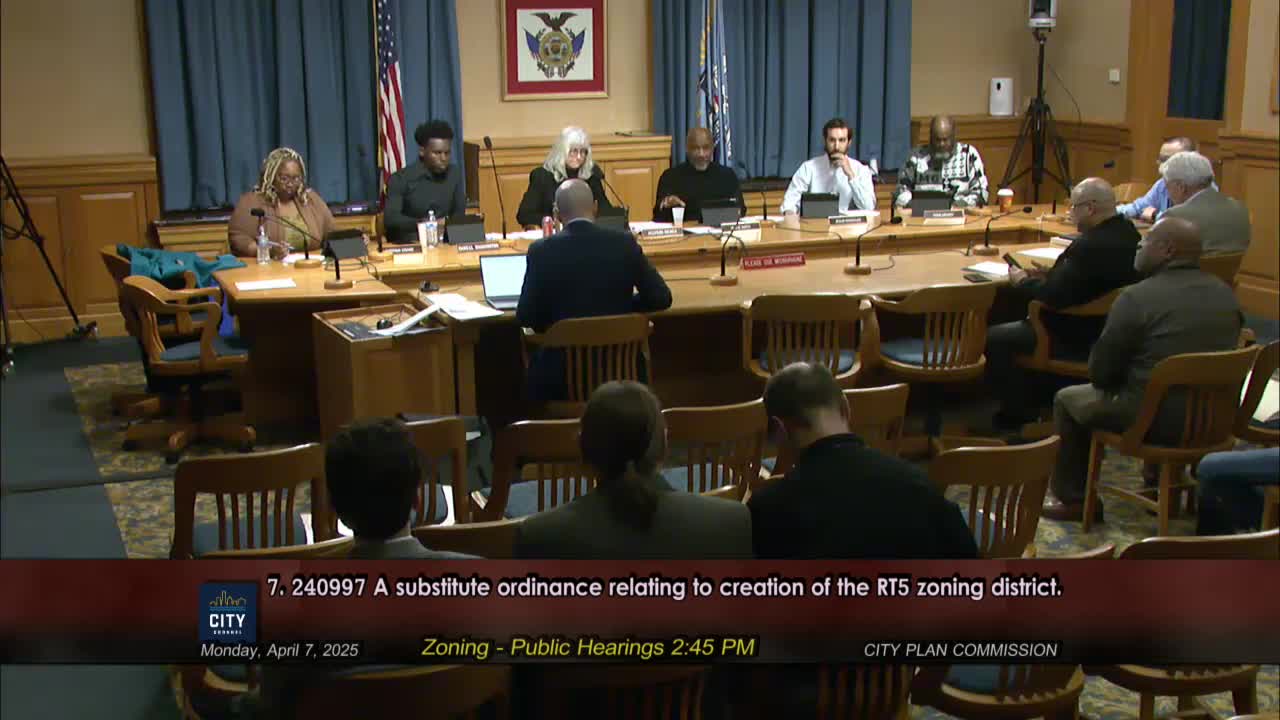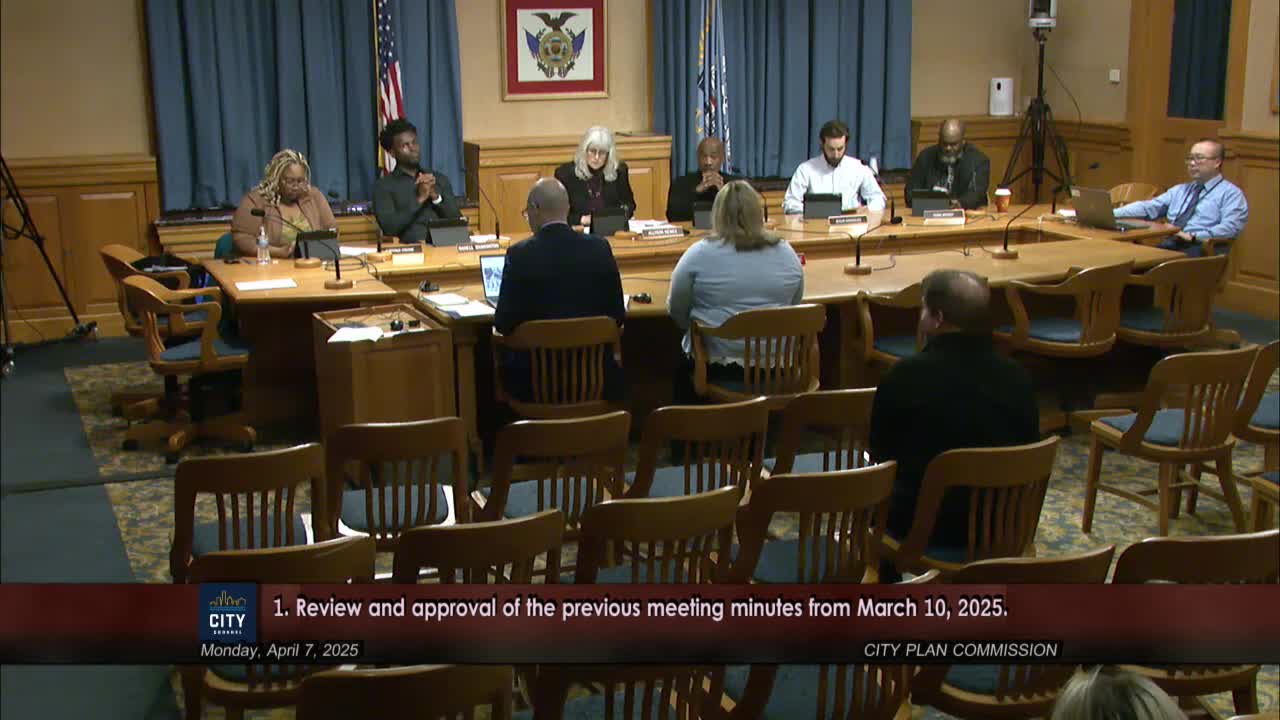Article not found
This article is no longer available. But don't worry—we've gathered other articles that discuss the same topic.

Plan Commission approves accessory dwelling unit zoning rules, including owner-occupancy verification at permit stage

Plan Commission rejects proposal to create unmapped RT5 zoning district after extended public comment

